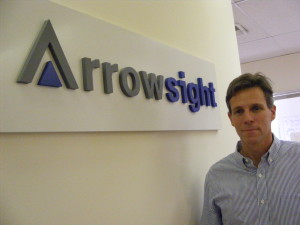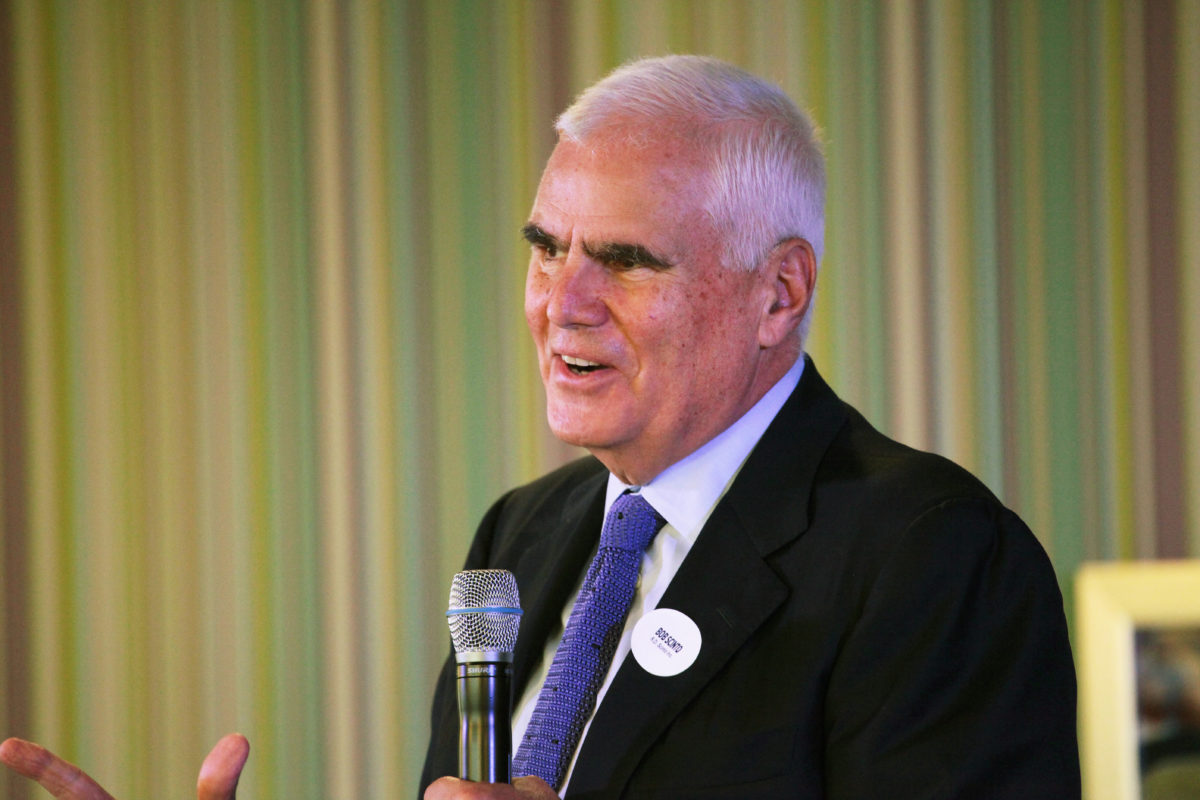On a wall-mounted screen in the demo room at Arrowsight Inc., a surgical unit team is being measured in real time at an unnamed hospital that is a client of this remote video auditing consultant in Mount Kisco. At an Arrowsight partner”™s call center in India, a worker monitors video footage from those operating rooms in the U.S. and relays data back to the company”™s storage and management locations here.
In OR1 on the screen, the housekeeping department has a “cleaning in progress.” They”™ve been at it 12 minutes now.
The patient in OR2 has been there 53 minutes, prompting an “Alert” on the screen. The same display can be seen on a hospital scoreboard by surgical unit staff.
“Positive reinforcement,” Arrowsight founder and CEO Adam B. Aronson calls the feedback his company provides employers and employees on workplace health, safety and efficiency practices. “This kind of feedback has been really successful as far as implementing teaching in many different venues without frustrating staff,” he said.

On another monitor in the demo room, a camera fixedly focuses on workers inside a distant meat packing plant. Meat handlers neglecting to wash hands, animal abuse issues, business losses from improper meat preparing: Arrowsight”™s video camera auditing can improve food safety, animal welfare and profit margins in the industry.
“The meat industry is a core business for us,” said Aronson, who spent three years visiting butchering plants around the country to sell them on his company”™s camera services. His industry clients now include Cargill Inc., JBS S.A., the Brazilian beef processing company and world”™s largest food processer, and OSI Industries in suburban Chicago.
A former currency trader at Credit Suisse First Boston, Aronson in the ”™90s ran two hedge funds. “We did very well and life was pretty exciting and good,” he said in the conference room of Arrowsight headquarters at 45 Kensico Drive. “But I knew early on that I didn”™t want to do that for my whole career. Currency trading, or trading in general, does not leave you with too many other skills in life.”
Inspired by a television show to launch a new online service, Aronson in the late ”™90s raised seed capital for his venture, ParentWatch Inc. Parents could log in remotely and watch their children on video cameras placed in day care centers. “This was many, many, many years before YouTube,” he said.
“It was during a very exciting time in the late ”™90s, basically anything that had to do with the Internet” attracted financing from investors. “Because of my background, I was able to raise a lot of capital very quickly” ”“ about $80 million, Aronson said.
From 1999 to 2001, ParentWatch had 120 employees, he recalled. But investors saw venture capital funds drying up and investment banks pulling out as the dot.com bubble was about to burst. “Just as quickly as it started, we unwound that business just as quickly in 2000, 2001,” Aronson said.
Though ParentWatch remains a small division of Arrowsight, Aronson redirected the company”™s focus and sought to broaden its target base of industries. “I believed from the very beginning that cameras could be used in a commercial setting to do good things for many people,” he said.
He hired L.E.K. Consulting to advise him on the company”™s new direction. Aronson said he expected to start with a list of 30 industries identified by the consultant as potential users of Arrowsight”™s services.
Instead, “They came back and said, ”˜The meat industry.”™” It is a $170 billion industry, said Aronson, and five companies control one-half of the country”™s meat processing plants. Arrowsight”™s CEO went calling on meat plants.
Having improved hand-washing hygiene in that industry, Aronson was urged by his father, a prominent Boston physician and professor at Harvard Medical School, to apply his business service to hospitals, where hygiene is critical in preventing infection and the spread of infectious diseases among patients and staff.
In 2004 and 2005, Aronson began canvassing New York City and Boston hospitals on their interest in installing cameras. “No one would even look at it,” he said. With hospital administrators concerned about regulatory compliance, privacy and liability issues, “No one wanted to do it.”
Aronson said he renewed his effort to expand his business to hospitals after both his mother and sister contracted hospital-acquired infections. He got his break in Macon, Ga., where a hospital allowed his cameras in to monitor and help improve proper hand-washing by staff. The hospital”™s hand-washing compliance rate shortly improved from 30 percent to 90 percent of workers.
That performance record attracted the attention of the head of infection control at North Shore University Hospital in Manhasset, part of the North Shore-LIJ Health System. Using Arrowsight”™s video cameras, the hospital conducted a massive study of some 450,000 hand-washing incidents between 2008 and 2011 in its intensive care units. As a result of the camera monitoring and feedback, staff compliance has risen from below 15 percent at the start of the study to 90 percent and above, a North Shore hospital executive told the trade publication Hospital Peer Review this year.
The hand-hygiene program validated the video auditing method to improve staff performance and hospital safety, Aronson said. But expanding the monitoring throughout hospitals has been a tough sell.
“Unfortunately, because of Obamacare and the enormous pressure on hospitals financially, hospitals are discouraged from making a lot of big safety-measure improvements,” Aronson said. Adapting to that reality, he has pinpointed the technology”™s use for monitoring of hygiene practices in isolation rooms for patients with contagious diseases.
The demo-room screen that clocks operating room procedures could be in greater demand from hospitals adjusting to the Affordable Care Act”™s focus on both quality of patient care and cost efficiency.
“What we”™re selling today is really in the operating room,” Aronson said. Hospitals draw 60 percent to 70 percent of their revenue from their surgical units, he noted.
The video auditing can improve operating-room performance across the board, from reducing the time that housekeepers clean a room for the next surgery to assuring that surgeons are operating “on the right body part” and not leaving foreign objects in a patient, he said.
The information collected by the cameras and processed with Arrowsight software is not used “in a punitive manner,” Aronson said. “We never post individual performance. It”™s always team data. The whole concept is, we”™re one big family.”
Arrowsight employs 73 staff workers and consultants, Aronson said, including 19 employees in Mount Kisco and about 40 staff workers in its Huntsville, Ala., office. Those numbers could grow if Arrowsight”™s recent partnership with a global consulting firm brings the video service to the partner”™s client businesses in numerous industries.
Aronson has his sights on the pharmaceutical industry. “Manufacturing in general is a gigantic opportunity,” he said.
“Anywhere there”™s a group of people responsible for making something or seeing people could benefit from this kind of program.”






















